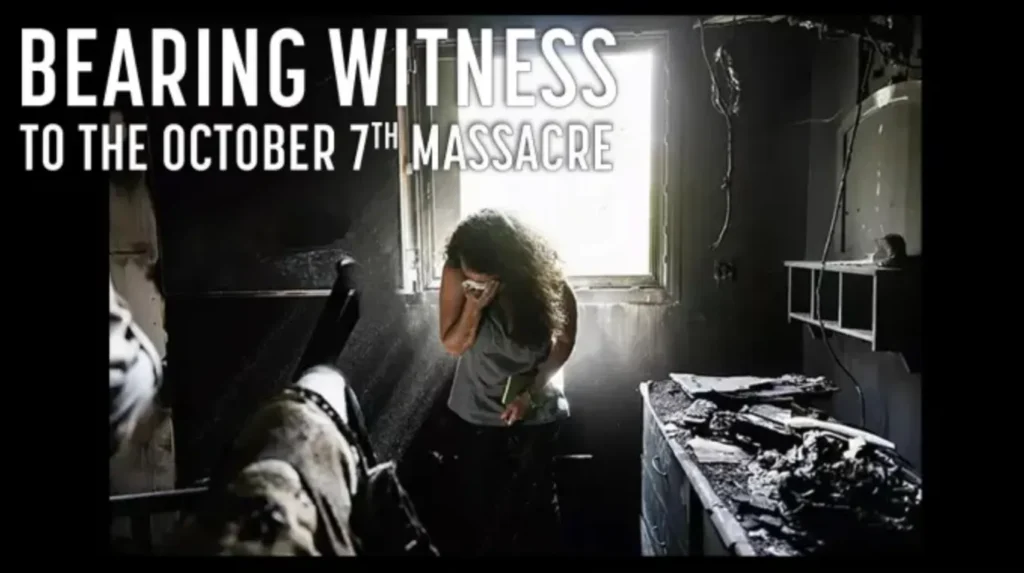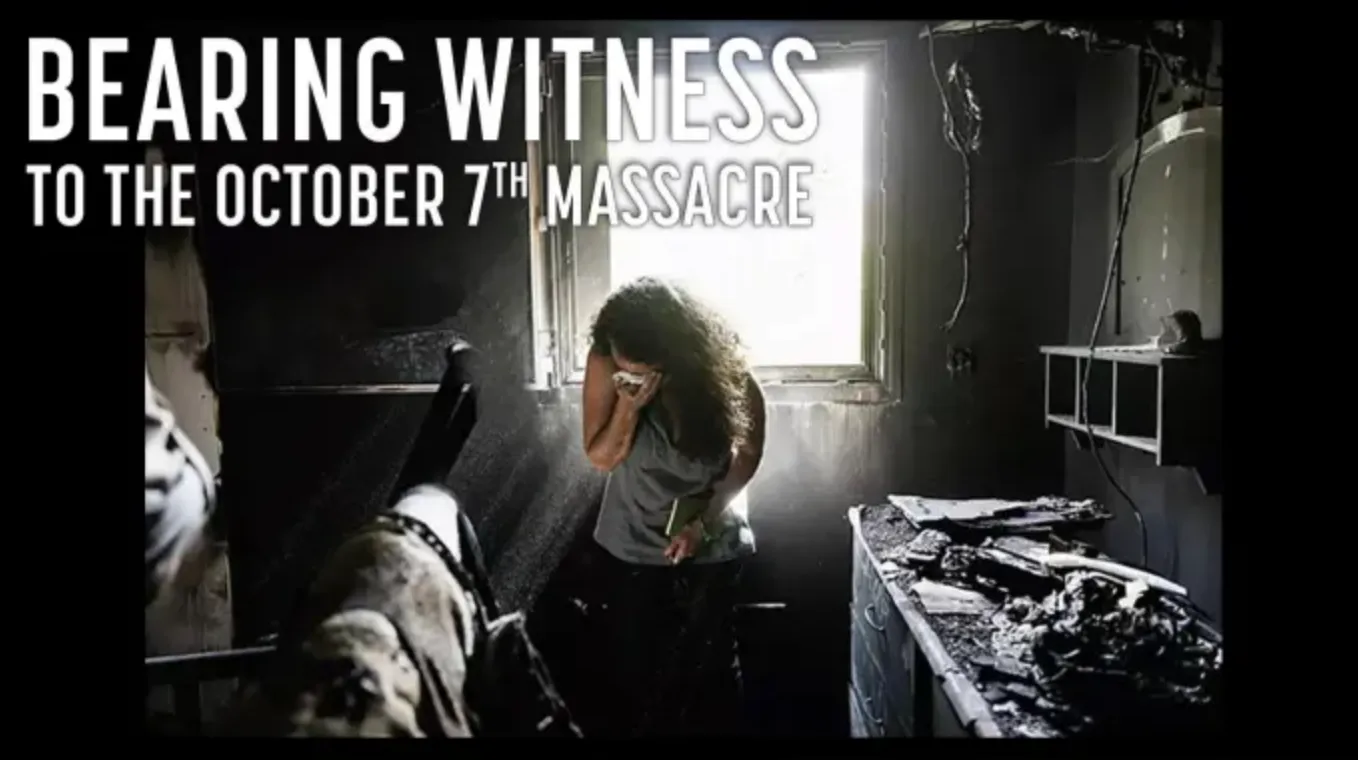
Click Here To Read The Full Article
As I signed the nondisclosure agreement and passed through the rigorous security protocol at the American Jewish Committee building in Manhattan, I found myself among a group of individuals, all uncertain of how to begin the difficult conversation ahead. Jamie Metzl, donning a watch from his grandfather purchased in Schaffhausen, Switzerland in 1945, shared a poignant story of his family’s survival during the Holocaust. His question lingered in the air – if someone with his background could not bear witness, who could we expect to?
The private screening of “Bearing Witness To the October 7th Massacre,” organized by Metzl, aimed to shed light on the atrocities committed by Hamas. Yet, as we awaited the arrival of other attendees, it became evident that many were hesitant to confront the graphic footage. Despite being seasoned journalists who had covered numerous atrocities, the weight of this event hung heavily in the air.
As we surrendered our phones and filed into the theater, the gravity of the moment settled upon us. The CEO of AJC, Ted Deutch, offered words of comfort, urging us to prioritize our mental well-being and providing access to support services if needed. Amnon Shefler, an international spokesman for the IDF, recounted the harrowing events of October 7th, a day marred by unspeakable violence against the Jewish community in Israel.
The screening commenced, and the raw, uncensored footage unfolded before our eyes. The depictions of carnage and brutality were gut-wrenching, capturing the true horror of the massacre. Each frame served as a painful reminder of the fragility of life and the depths of human cruelty.
As the scenes unfolded, I found myself grappling with a mix of emotions – from profound sadness to simmering anger. The imagery was hauntingly intimate, capturing the final moments of innocence and the unbearable loss suffered by countless individuals. Each frame painted a vivid portrait of suffering and inhumanity.
Click Here To Read The Full Article
Among the most poignant moments was a glimpse of a father’s sacrifice to protect his sons, only to meet a tragic end. The imagery was heart-wrenching, underscoring the stark realities faced by families torn apart by senseless violence. The sense of helplessness and despair was palpable, leaving a lasting impact on all who bore witness.
We hear one son tell his parents on tape, “Turn on your WhatsApp! I killed 10 Jews with my hands! Mom your son is a hero! Kill! Kill! Kill!” Then, ten minutes of bodies, incinerated bodies, decapitated bodies, bodies shredded, burned, bloodied, pulverized, and a girl nude from the waist down in death looking like a mannequin, one perfectly manicured hand held before her bone-white face, as if to say, “Hold on, hold on!”
As we grappled with questions of culpability and complicity, Shefler’s words resonated – at the core of such atrocities lies terror, a force that transcends borders and ideologies. The massacre was a stark reminder of the pervasive threat posed by violent extremism and the imperative to stand united against hate and injustice.
In the aftermath of the screening, as we reflected on the horrors witnessed, the call for bearing witness reverberated in our hearts. The need to confront the realities of such atrocities and to act with resolve and compassion was underscored as a solemn duty.
As we left the theater, the weight of the experience lingered, urging us to channel our shock and grief into meaningful action. The echoes of the massacre served as a sobering reminder of the urgent need for vigilance and solidarity in the face of hatred and violence.
And so, as we parted ways, united by a shared sense of determination and empathy, the resonance of that fateful day continued to echo in our souls. It was a stark reminder of the fragility of peace and the enduring power of bearing witness to the darkest chapters of human history.




